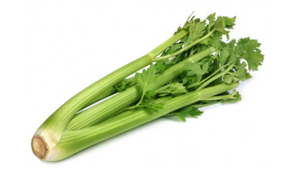by
Stepy —
January 15, 2021
- The health benefits of eating celery are many.
- Fresh organic foods such as celery are packed with antioxidants and unique nutrients that boost the immune system.
- Celery is from the Apiaceae, which is the same family as carrots, parsley, cumin, and dill.
- But it is not just a low-calorie food; it has many other amazing health benefits as well.
-
- Let’s look at the health benefits of eating celery.
-
- Anti-inflammatory properties:
- This is a top health benefits of eating celery.
- Celery has potent anti-inflammatory properties.
- Chronic inflammation is a major risk factor for many types of cancers.
- The antioxidants in celery help regulate the body’s inflammation system and reduce unwanted inflammation.
-
- Antioxidant rich:
- Celery is rich in antioxidants, especially vitamin A and C, beta-carotene, and manganese. Antioxidants protect the body from the effects of oxidative stress, which may help strengthen the immune system and ward off diseases.
- Dr. Andrew Weil explains, “oxidative stress is the total burden placed on organisms by the constant production of free radicals in the normal course of metabolism plus whatever other pressures the environment brings to bear (natural and artificial radiation, toxins in air, food and water; and miscellaneous sources of oxidizing activity, such as tobacco smoke).” The effects of oxidative stress are often linked to chronic illnesses such as heart disease and many types of cancers.
-
- Cancer prevention:
- Organic celery contains a flavonoid called luteolin. Studies show that this flavonoid may provide anti-cancer properties.
- A study published in the journal Current Cancer Drug Targets shows that research has attributed cancer prevention properties to luteolin.
-
- Digestive health:
- Organic celery is a great source of polysaccharides, which can aid in stomach and digestive health. These polysaccharides provide anti-inflammatory benefits in the gut.
- An animal study published in the journal Pharmaceutical Biology showed that celery extracts improves the health of the stomach lining, decreases the occurrence of gastric ulcers, and controls the levels of stomach acids.
-
- Heart health:
- Because of the antioxidant and anti-inflammatory properties, celery can reduce the effects of oxidative stress and inflammation that can lead to heart conditions, including atherosclerosis.
-
- Hydration:
- Organic celery is almost all water, making it a great food to keep you hydrated. The water in celery helps keep the whole body hydrated. It keeps the skin moist and the hair healthy as well.
-
- Lowers blood pressure:
- Phenolic substances in organic celery have been shown to reduce blood pressure. High blood pressure can cause serious conditions including damage to the coronary arteries, stroke, kidney damage, vision loss, and more.
-
- Weight loss:
- Last but not least, one of the often forgotten health benefits of eating celery resides in the fact that it is very low in calories. it has only 16 calories per cup.
- It is also high in dietary fiber, with 1.6g per cup, which is 6% of the recommended daily value. Foods that are low in calories and high in fiber are ideal weight loss foods. The fiber makes you feel full faster, so you eat less.
-
- AS ALWAYS: Check with your health practitioner before you change your diet. This organic food is not meant to replace any treatment or drugs you are taking.
-
- REFERENCES:
- 1. “What Are the Health Benefits of Celery?” Medical News Today. MediLexicon International, 01 Feb. 2014. Web. 25 Aug. 2014.
- 2. “Luteolin, a Flavonoid with Potential for Cancer Prevention and Therapy.” National Center for Biotechnology Information. Current Cancer and Drug Targets, Nov. 2008. Web. 25 Aug. 2014.
- 3. “Nutrition Facts and Analysis for Celery, Raw.” Self Nutrition Data. Self Nutrition Data, n.d. Web. 25 Aug. 2014.
- 4. “Gastric Antiulcer, Antisecretory and Cytoprotective Properties of Celery (Apium Graveolens) in Rats.” National Center for Biotechnology Information. Pharmaceutical Biology, July 2010. Web. 25 Aug. 2014.
- 5. “Antioxidant Activities of Celery and Parsley Juices in Rats Treated with Doxorubicin.” National Center for Biotechnology Information. Molecules, 03 Sept. 2010. Web. 25 Aug. 2014.
- 6. “Chemical Composition and Anti-inflammatory Activity of Pectic Polysaccharide Isolated from Celery Stalks.” Science Direct. Food Chemistry, 15 May 2009. Web. 25 Aug. 2014.
- 7. “Phenolic Composition and Antioxidant Activities of 11 Celery Cultivars.” National Center for Biotechnology Information. Journal of Food Science, Jan.-Feb. 2010. Web. 25 Aug. 2014.
- 8. “Stumped by Oxidative Stress?” WEIL. Dr. Andrew Weil, 17 Mar. 2009. Web. 25 Aug. 2014.
- 9. “Antihypertensive Effect of Celery Seed on Rat Blood Pressure in Chronic Administration.” National Center for Biotechnology Information. Journal of Medicinal Food, June 2013. Web. 25 Aug. 2014.


















